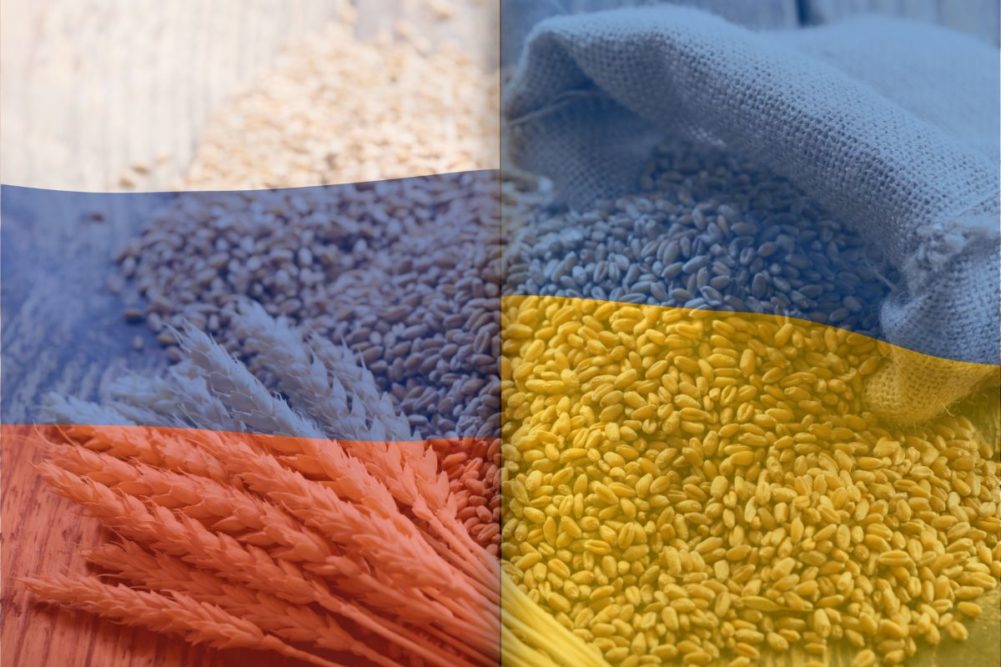KYIV, UKRAINE — The first ship carrying Ukrainian grain under a deal brokered by Turkey and the United Nations left the port of Odesa on Aug. 1, carrying 26,000 tonnes of corn destined for Lebanon, The Associated Press reported.
The food security of millions of people is at stake as more than 20 million tonnes of grain sit in Ukrainian silos at the Black Sea port of Odesa and ships are stranded due to the Russian blockade that began with its invasion of Ukraine on Feb. 24. Russia and Ukraine signed separate agreements on July 22 with Turkey and the UN clearing the way for Ukraine to export grain and other agricultural goods while allowing Russia to export grain and fertilizers.
“The first grain ship since Russian aggression has left port,” said Ukraine’s Minister of Infrastructure Oleksandr Kubrakov on Twitter, posting a video of the long vessel sounding its horn as it slowly headed out to sea.
Posting separately on Facebook, Kubrakov said Ukraine is the fourth-largest corn exporter in the world, “so the possibility of exporting it via ports is a colossal success in ensuring global food security.”
In Moscow, according to The Associated Press, Kremlin spokesman Dmitry Peskov hailed the ship’s departure as “very positive,” saying it would help test the “efficiency of the mechanisms that were agreed during the talks in Istanbul.”
Turkey’s defense minister, Hulusi Akar, said the Razoni was expected to dock Aug. 2 in Istanbul at the entrance of the Bosporus, where joint teams of Russian, Ukrainian, Turkish and U.N. officials would board it for inspections.
The Sierra Leone-flagged cargo ship Razoni left Odesa carrying corn for Lebanon, a tiny Mediterranean nation of 6 million people that is battling increased food scarcity amid soaring prices. A 2020 explosion at its main port in Beirut shattered its capital city and destroyed grain silos there, a part of which collapsed following a weekslong fire on July 31.
Lebanon mostly imports wheat from Ukraine but also buys its corn to make cooking oil and to produce animal feed. On July 26, Lebanon’s government approved using a $150 million World Bank loan to pay for wheat imports and stabilize domestic bread prices.
The Turkish defense ministry said other ships would also depart Ukraine’s ports through the safe corridors in line with deals signed in Istanbul on July 22 but did not elaborate.
Ukraine’s infrastructure ministry said that 16 more ships, all blocked since the beginning of Russia’s full-scale invasion of Ukraine on Feb. 24, were waiting their turn in the ports of Odesa.
As part of the deal, officials from Russia and Ukraine agreed there would be no attacks on ships moving through the Black Sea to Turkey’s Bosphorus Strait and on to markets.
A Joint Coordination Centre (JCC) for Ukrainian grain exports was opened July 27. The JCC will monitor the movement of commercial vessels to ensure compliance with the initiative; focus on exporting bulk commercial grain and related food commodities only; ensure the on-site control and monitoring of cargo from Ukrainian ports; and report on shipments facilitated through the initiative.
Ukraine is a major grain exporter, last year supplying 11% of the world’s wheat exports, 12% of corn exports and 43% of sunflower oil exports. Since Russia invaded Ukraine on Feb. 24, a naval blockade has prevented Ukraine from shipping grain out of its southern ports. The country has made a valiant effort to ship as much grain as possible via railways, roadways and rivers, but that has accounted for only a small percentage of its potential export total.
With one of the world’s biggest grain exporters on the sideline, global grain and food prices have soared during the last five months as has food insecurity, particularly in developing countries that are highly dependent on grain from the Black Sea region.






